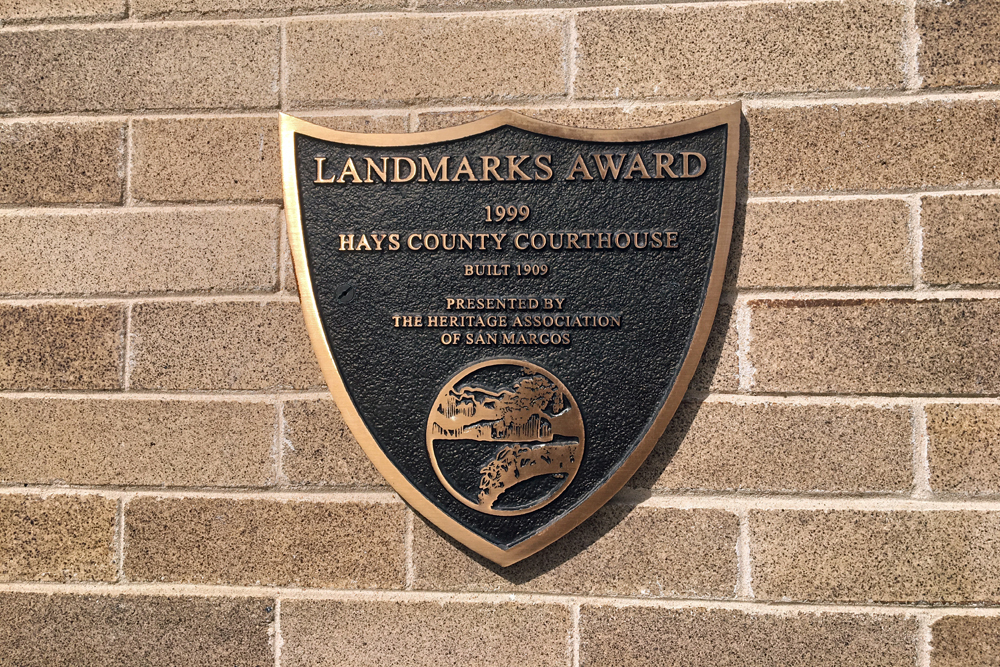
Hays County Commissioners To Consider Approval Of Revolving Door Policy
Staff Reports
Today, the Hays County Commissioners Court will hold a discussion and consider possible action on a “Revolving Door Policy.”
On April 16, the commissioners held a workshop to discuss establishing “revolving door prohibitions” for the county.
Chief of Staff of the Hays County Judge’s office, Alex Villalobos, said, “These policies have been in place since the late 1800s at the federal level with some landmark changes 1962, 1978 and 1989, and in 2007, it involved lobbying so to speak with regards to federal offices.”
Villalobos told commissioners the City of Kyle and the City of San Marcos have polices in place that “prohibit certain types of activity with regards to contracting businesses, private business representation into government subdivisions…overall professional services and projects.”
Villalobos went on to say that the county does have some procurement things that prevent some of those things, but “the overall revolving door policy is not in place.”
According to Villalobos, at several of the local municipalities and the federal level use a 2-year “cooling off period” for executive level or elected officials.
Revolving Door Policies are used to prevent conflicts of interests between the movement of high-level employee or elected officials from public sector jobs to private sector jobs and vice versa.
The policy’s objective is to prevent former county staffers or elected officials from benefiting from their previous connections in the public or private sector. High-level employees and elected officials would have an insight into how the county worked when it came to contract processes.
Villalobos said the policy would address conflict of interest on private employment activities after leaving service, restrictions to certain representational types activities for private employers such as lobbying and advocacy directed to influence current elected officials, define key people and provide direction.
“I think it’s critical that we define those key people because we do have some front-line staff people within the county organization that do work for some vendors that have contracts possibly with the county,” Villalobos said. “I think the key people would be people that understood the inner workings of our government, understood contract issues, have access to confidential information about county government…and then any other insider information with regards to our county government.”
“I believe we need a revolving door policy,” Judge Ruben Becerra said. “There’s wording in our current way of doing business that is eluding to it in one way or another, and I think as a community we have some work to do to fortify the confidence our residents have with Hays County’s way of doing business.”
County Legal Counsel, Mark Kennedy, said Texas is an at-will employment state, and the county could not dictate what an individual can or cannot do after the county had employed them; the only way they could would be to include it in an employment contract.
“I think if you try to dictate what an individual can or cannot do after employment, you have rejected the notion of employment at-will,” Kennedy said.
Commissioners expressed caution when it came to dictating what an individual could or could not do following their employment with the county.
Commissioner Walt Smith said he thought someone’s intimate knowledge of the county would benefit taxpayers when the individual was working for a company and crafting a bid for a project.
Commissioners Smith and Mark Jones also expressed concerns on how such a policy could limit the county to a smaller, competitive pool of companies and contractors with experience for certain projects.
“I think at the end of the day it’s somebody who has the intimate knowledge of understanding of how to create a proposal that gains business for that particular entity,” Villalobos said.
According to Villalobos, the company would have an unfair advantage over other companies, who did not have insider information on how the county worked, from seeking to do business with the county.
Becerra said the policy was in “no means an intent” to dictate the county employees; “it was for specific department heads or elected officials that would on the flipside generate an unfair advantage, insider trading type, for ultimately an added expense…”
Becerra noted that the county’s code of ethics already covers, but said the revolving door policy, or prohibition, is just about highlighting, or fortifying the effort that’s already on the books and not change the way the county does business.
“I’ve had a few people we do business with in the county approach me privately, and have asked that we talk about it,” Becerra said. “Because without exposing who or how many, we are faced with people in our county feeling bullied, not all employees, to hire former key leadership of the county and if they don’t it’s a ‘do this or else’ kind of godfather fee of sorts.”
Commissioner Lon Shell proposed a solution to require firms, who are in the running for discretionary bids, to provide the county with a disclosure regarding the employment of any former county elected officials or employees from the last year.
Shell said a disclosure agreement would reveal any potential conflict of interested for the commissioners to discuss prior to the contract’s award, and vendors would be able to file grievances with the auditor’s office.
Commissioners will provide direction to staff today on implementing decisions of the court on the Revolving Door Policy issue. Commissioners Court convenes at 9 AM on the third floor of the Hays County Historic Courthouse in Downtown San Marcos.






